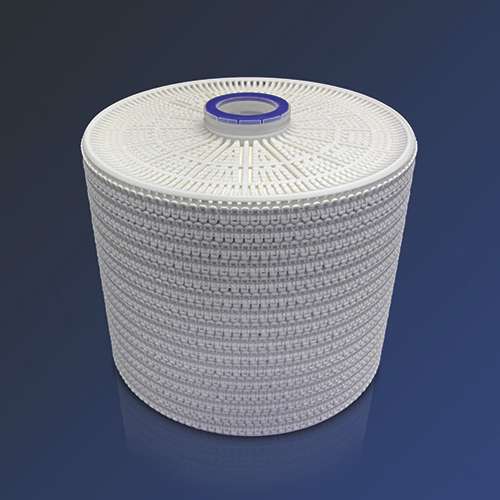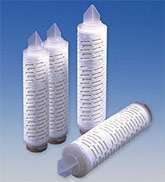Effective Microorganism Removal Solutions for Flavor Production
The production of flavors is increasingly based on the use of natural raw materials. Vegetable materials are often used, which, due to their agricultural origin and harvest forms, are often contaminated with soil and dust components. As a rule, these soil and dust particles are contaminated with microorganisms, which often cannot be rendered harmless by heat during the flavor manufacturing process.
In addition, raw materials, products and liquids mixed with the flavors after extraction to achieve the final product can all be sources of microbiological contamination. An increasing number of spoilages can be due to contamination by thermoacidophillic bacteria (TAB). TAB can affect final product quality, impacting product odor and taste. For example, in apple juice, the spoiled juice appears normal or may have light cloudiness or haze. The main spoilage characteristic is an off-odor described as a “medicinal,” “phenolic,” “disinfectant” or a “smoky” offensive smell.
The predominant metabolite associated with the off-odor has been identified as guaiacol, but studies also report halophenolic compounds such as 2,6–dibromophenol and 2,6–dichlorophenol participate in the taint.
Aside other microorganisms, the presence of TAB is critical for the flavor manufacturing process. It requires an effective filtration process to remove TAB bacteria and spores, as heat is not the solution to inactivate this microorganism.
Solutions for effective removal
Depth sheet filters are the approved method to remove microorganisms and TAB. As the flavoring process requires enclosed filter systems, the use of SUPRAdisc II modules is the lead solution for the removal of microbiological contaminants and TAB from flavors in combination with a membrane cartridge as the final filter prior to packaging.
Classic stacked disc modules represent first-generation module design, but they have performance disadvantages. Depth media can be compromised during shipping, handling and installation as well as removal. Classic stacked disc modules are sensitive to high-temperature operations such as hot water sanitization, steaming or hot filtration. Deformation caused by high-temperature exposure is a common problem, alongside modules that can fall apart when removed from the housing.
Pall has developed SUPRAdisc II modules that address the limitations of classic stacked disc modules.
SUPRAdisc II modules incorporate a double separator concept. The unique separator design provides both upstream and downstream support of the filter media. The media is sealed inside a polypropylene cage assembly and is no longer exposed. The unique Clip-Seal Interlock and welded design connect the outside to the inside separators resulting inan extremely robust design.
SUPRAdisc™ X-Series Depth Filter Modules
Uses Kieselgur in combination with a highly fibrillated cellulose fiber matrix to remove Microorganisms and TAB from flavors
SUPRAdisc™ II Stacked Disc Depth Filter Modules
Uses 100% pure cellulose fiber matrix esp. for very color and aroma sensitve processes
Seitz® K-Series Depth Filter Sheets
Seitz K-Series depth filter sheets are available in multiple grades suitable for microbial reduction. A combination of surface, depth and adsorptive filtration provides an excellent filtrate quality while providing reliable microbial reduction.
Seitz® ZD Series Depth Filter Sheets
Consisting of highly fibrillated pure Cellulose fibers , Seitz EK ZD and Seitz KS 80 ZD are the lead filter sheets for the removal of mocrobiological contaminants. Providing microorganism reduction in a wide range of extraction liquids, the 100% pure cellulose depth filter media provides a strong filtration media with low impact on color and flavor.
Flurodyne® II Membrane Cartridges
The Flurodyne II filter was developed and validated to provide a secure and reliable removal of microorganisms in the final filtration of critical fluids. The cartridges are suitable for exposure to repeated hot water and in situ steam santization cycles for longer service life.
To find out more, or to speak to one of our specialists, contact us by completing our form.







.png?$OptimizedPNG$)